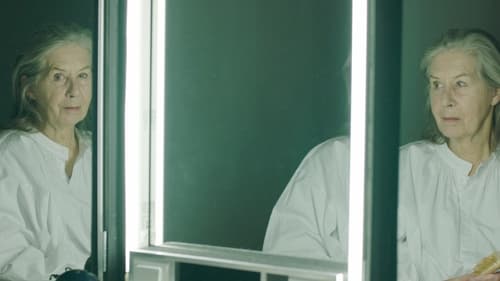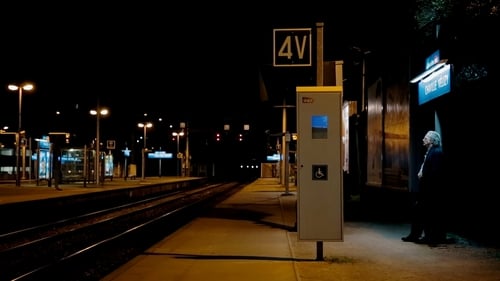
Editor
Amina Handke adapts the 1967 theatre play Kaspar written by her father Peter Handke. Instead of a young man being tortured by language, we meet an old woman played by the director’s mother, Libgart Schwarz, who loses her linguistic abilities while rehearsing for the very same play. What begins as a pure and playful family meta-fiction turns into a surreal, partly nonsensical Babylonian confusion, it’s just that it’s not different languages that are clashing but layers and fragments of the German language, the language of the father. The film avoids the traps of representational cinema. It’s all noises and muttering, injunctions and an almost Dadaist pleasure in repeating sentences until they completely lose their meaning.

Decorator
Amina Handke adapts the 1967 theatre play Kaspar written by her father Peter Handke. Instead of a young man being tortured by language, we meet an old woman played by the director’s mother, Libgart Schwarz, who loses her linguistic abilities while rehearsing for the very same play. What begins as a pure and playful family meta-fiction turns into a surreal, partly nonsensical Babylonian confusion, it’s just that it’s not different languages that are clashing but layers and fragments of the German language, the language of the father. The film avoids the traps of representational cinema. It’s all noises and muttering, injunctions and an almost Dadaist pleasure in repeating sentences until they completely lose their meaning.

Screenplay
Amina Handke adapts the 1967 theatre play Kaspar written by her father Peter Handke. Instead of a young man being tortured by language, we meet an old woman played by the director’s mother, Libgart Schwarz, who loses her linguistic abilities while rehearsing for the very same play. What begins as a pure and playful family meta-fiction turns into a surreal, partly nonsensical Babylonian confusion, it’s just that it’s not different languages that are clashing but layers and fragments of the German language, the language of the father. The film avoids the traps of representational cinema. It’s all noises and muttering, injunctions and an almost Dadaist pleasure in repeating sentences until they completely lose their meaning.

Director
Amina Handke adapts the 1967 theatre play Kaspar written by her father Peter Handke. Instead of a young man being tortured by language, we meet an old woman played by the director’s mother, Libgart Schwarz, who loses her linguistic abilities while rehearsing for the very same play. What begins as a pure and playful family meta-fiction turns into a surreal, partly nonsensical Babylonian confusion, it’s just that it’s not different languages that are clashing but layers and fragments of the German language, the language of the father. The film avoids the traps of representational cinema. It’s all noises and muttering, injunctions and an almost Dadaist pleasure in repeating sentences until they completely lose their meaning.

Herself
In the sixties, Peter Handke was one of the first to show how the business works: the writer as angry young man and pop star of the literary scene. As soon as he was on the bestseller lists, he turned his back on the hype. For many years, he has lived and worked in his house in a Parisian suburb, more quietly and more hospitably. Peter Handke's precise, free gaze becomes perceptible in his texts, his conversations, the cosmos of his notebooks.

Editor
Documentary about the making of the 1949 film "The Third Man".




